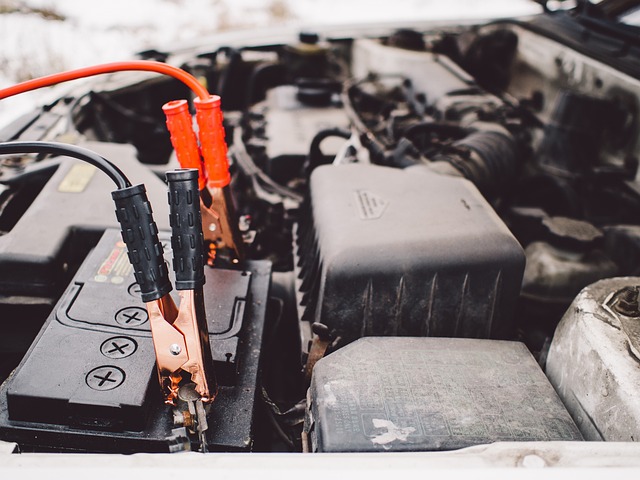Before replacing your car battery, understand that price varies by capacity, brand, and technology. High-quality batteries may be more expensive but last longer. Evaluate warranties, brands, and customer reviews for informed choices. Regular maintenance, including terminal cleaning and voltage checks, extends battery life and prevents costly replacements. Compare battery types like lead-acid and lithium-ion, considering price, lifespan, and charging times. Choose reputable brands for quality products with warranties. Proactively monitor battery health to reduce replacement costs. Plan for strategic timing and seasonal discounts when replacing batteries.
In today’s market, understanding the cost of your car battery is crucial before deciding to replace it. This comprehensive guide offers 10 insightful tips to effectively compare and evaluate battery costs. From comprehending your vehicle’s power demands to navigating brand variations, we explore strategies for smart, efficient battery replacement. Through regular maintenance and a thoughtful approach to selection, drivers can extend battery life, ensuring reliable performance at a reasonable cost.
- Understanding Your Car Battery's Cost
- Regular Maintenance: A Long-Term Strategy
- Comparing Battery Types and Prices
- Brand Impact on Battery Costs
- Tips for Efficient Battery Replacement
Understanding Your Car Battery's Cost

Understanding your car battery’s cost is a crucial step before deciding on a replacement. Car batteries are not one-size-fits-all; their prices vary widely based on factors like capacity, brand, and technology. When considering a replace car battery, look beyond the immediate cost. High-quality batteries may carry a steeper price tag upfront, but they often offer longer lifespans and superior performance, potentially saving you money in the long run by reducing the need for frequent replacements.
Moreover, understanding that battery costs aren’t solely determined by price can empower you to make more informed choices. Factors such as warranty coverage, brand reputation, and customer reviews can significantly impact the value of a battery. By evaluating these aspects alongside cost, you’ll be better equipped to identify the best deal for your needs and budget when it comes time to replace your car battery.
Regular Maintenance: A Long-Term Strategy

Regular maintenance plays a crucial role in extending the life of your car battery and ensuring optimal performance. It’s not just about occasional checks; it’s a long-term strategy to save on costs associated with frequent battery replacements. Simple practices like keeping the battery terminals clean and tightly secured can prevent corrosion build-up, which over time can reduce its efficiency. Regularly testing the battery voltage and checking for any signs of damage or leaks is also essential. Many experts recommend checking your car battery every 3 to 6 months, depending on usage and environmental conditions.
By adopting these maintenance habits, you’ll be able to identify potential issues early on, preventing sudden failures that might require an urgent replace car battery situation. This proactive approach not only saves money but also ensures your vehicle remains reliable, especially when you’re on the road. Remember, a well-maintained battery can last significantly longer, reducing the need for frequent replacements and contributing to a more sustainable and cost-effective automotive experience.
Comparing Battery Types and Prices

When considering a replace car battery scenario, comparing different battery types and their prices is paramount to making an informed decision. There are several factors that influence cost, such as the battery’s size, capacity (measured in amp-hours), brand, and technology. Lead-acid batteries, the most common type, offer a balance between price and performance but require more maintenance. Lithium-ion batteries, though pricier, boast longer lifespans, superior reliability, and faster charging times—advantages that can offset their higher upfront cost over time.
Understanding pricing variations across these categories is crucial. Prices can range widely based on the battery’s quality and features. Premium brands often command a higher price but may offer extended warranties or enhanced performance. Online marketplaces can provide valuable insights into current prices, allowing you to benchmark costs and identify potential deals. Remember, when comparing, to consider not just the battery’s cost but also its compatibility with your vehicle and any associated installation expenses.
Brand Impact on Battery Costs

When considering a new replace car battery, one often overlooked factor is the brand. The brand of the battery can significantly impact its cost, performance, and longevity. Reputable brands have invested heavily in research and development, ensuring their products meet high-quality standards. As a result, their batteries tend to be more expensive but often come with extended warranties, offering peace of mind.
On the other hand, generic or lesser-known brands may offer cheaper options, but they might not perform as well or last as long. Lower-cost batteries could also have inferior components, making them more susceptible to failure, requiring frequent replace car battery replacements over time.
Tips for Efficient Battery Replacement

When it comes to replace car battery costs, efficient strategies can significantly impact your wallet. One key tip is to stay proactive and monitor your battery’s health regularly. Many modern vehicles provide warning signs when a battery replacement is nearing. Keep an eye on dashboard indicators or check under the hood for any visible corrosion on terminal connections, which could signal a deteriorating battery. Regular maintenance, including cleaning and inspecting these terminals, can prolong battery life.
Additionally, timing your replace car battery replacement strategically can save you money. Batteries typically last between 3-5 years, depending on usage and environmental factors. Waiting until the very end might result in a more expensive replacement during an emergency. Regular checks allow you to anticipate the need and potentially take advantage of seasonal discounts or promotions offered by automotive service centers.
When considering a replacement car battery, understanding its cost in relation to your vehicle’s overall health and maintenance is key. Regular upkeep can significantly extend battery life, while comparing different types and brands will help you find the best value for your needs. By following these tips on efficient battery replacement, you’ll not only save money but also ensure your car starts reliably, keeping you safe and sound on the road.
